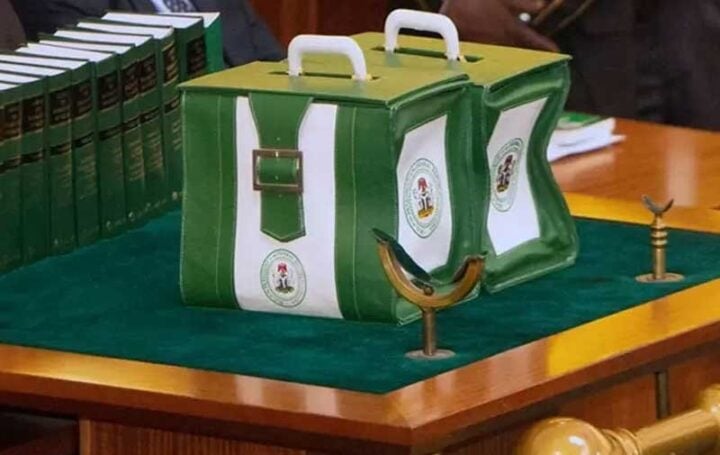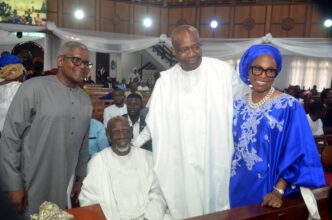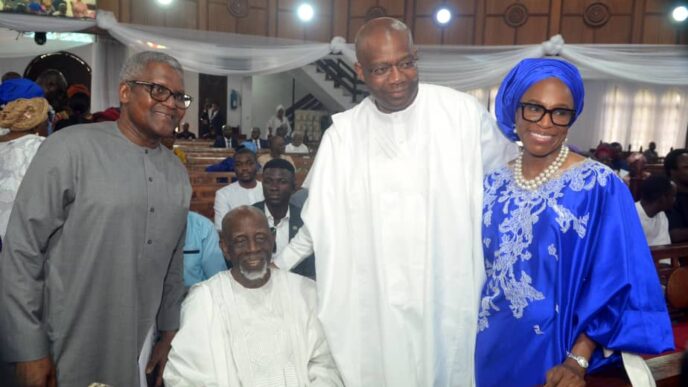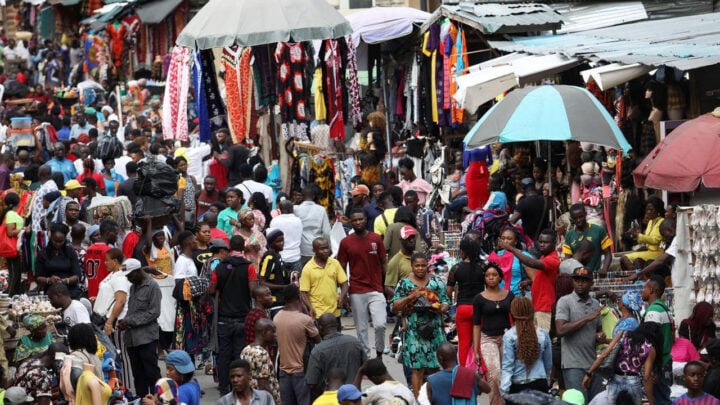‘Whatever will be, will be’, translated in Latin as “Que Sera, Sera”, was the response I got from a friend when I asked him over lunch if he possibly thinks that with the current economic growth rate, Nigeria can attain the status of a trillion dollar economy by 2030. A colloquial I know sounds very familiar and has assumed a very popular form of sloganeering, depicting that the future is in the air and fate determines the outcome of a course of events. While this phrase may often come in handy and be correct in some instances and could be a helpful attitude to ease anxiety, the same cannot be adopted for a nation’s economy as no economy is guaranteed to grow unless certain factors are dispassionately implemented.
Certain factors determine the kind of economy countries have. One of such factors is the expenditures profile of the government. Nothing is left to chance in the economic transformative processes of a nation. Data and stats play critical roles and financial and economic experts go in the direction they take them, just in the same way DNA evidence does in forensic crime investigations – I understand crime investigators would typically go anywhere DNA evidence leads them even if other evidence may be pointing in a different direction.
Achieving profound economic growth requires conscientious and intentional planning. Talking about planning and the economic projections for the next five years, one would wonder, going by the stats analysed in the 2025 Appropriation Bill dubbed “The Restoration Budget: Securing Peace, Rebuilding Prosperity” and presented to the NASS by President Tinubu last month, if the kind of total expenditure earmarked in this bill would guarantee the GDP threshold of $1 trillion promised by this administration by 2030. Are we truly on track to achieve this phenomenal feat in five years?
With an average growth rate of 3.2 percent in 2024, the economic growth is indisputably very slow and the government needs to expand the economy by increasing spending exponentially. There is a direct correlation between the annual total spending of a government and economic growth. Many had hoped that there would be a dramatic shift to substantially increase the government’s 2025 total expenditure to spur productivity and aggregate demand, create job opportunities, make massive investments in infrastructure in key sectors and improve the quality of life of Nigerians.
Advertisement
The size of the 2025 budget relative to the size of our population has come under attack. It highlights the disappointment of many wishing that the total spending would be considerably higher but definitely not to fund corruption. A surfeit of experts have described it as too meagre to service a population as large as ours – estimated by IMF to be 233 million. Nonetheless, the hallmark of the 2025 Appropriation Bill is the conspicuous absence of any funds allocated to fuel subsidy. This has loomed large over the economy of this nation. The response to its non-inclusion has been meteoric and sensational – rightly so. The removal of the fuel subsidy is a long time coming and it will assuredly have enduring economic effects well into the future for the country.
However, it is as if the makeup of the 2025 national budget proposal has taken a surprising new twist with debt servicing replacing the fuel subsidy. It can be safely assumed that the $6-10 billion characteristically allocated to this expense line over the years has been repackaged as debt servicing – 15.8 trillion naira ($10 billion). While the 2025 Appropriation Bill of 49.7 trillion naira is 42 percent higher than the 2024 Appropriation Act of 35 trillion naira, it is way smaller in absolute terms due to the massive devaluation of the naira.
Unfortunately, Nigeria would continue to reel from naira devaluation because of her debt burden notably from our foreign exposures. A deficit financing of 13 trillion naira occasioned by the ridiculously low revenue profile of the nation is extremely worrisome. Implications are that the debt servicing for 2026 will likely increase. The reversal would however continue to be elusive if the nation’s revenue profile isn’t stepped up to appreciably stem deficit spending and stop the reliance on loans.
Advertisement
To fix this, rebuild fiscal space and create macroeconomic stability, there may be an urgent need to restructure the country’s debt portfolio. There are reports that Nigeria is being ripped off with high fees as the interest rates by international creditors on loans availed to the country are one of the highest globally. An urgent need to renegotiate the terms of most of our exposures is extremely desirable. Furthermore, there should be a lot of debates and discussions around how to boost the state of our government and eke out an economic win that would serve the overall interests of the people.
Equally, it is imperative to reset budgetary conversations and develop decent revenue sources pretty fast especially from non-natural sources like taxes and levies. Imagine if the nation’s tax-to-GDP ratio moves northwards from around 10 percent to 25 percent with effective tax administration and laws, a sum of $50 billion (80 trillion naira) would accrue to the federation account just from taxes alone, with the current size of our economy.
The red tape must be cut to engender economic prosperity and development and curb waste and fraud. This is essential to achieve any meaningful success with the implementation of this and subsequent national budgets. Even though it is shy of expectations, it is expected that this Appropriation Bill would benefit all Nigerians regardless of ethnic or political inclination and serve as a gateway to connect with the people for the attainment of wide-ranging social needs and address the public safety crisis in many parts of the country.
It is an unsettling time for most Nigerians as far as the economy is concerned as little could prepare many folks for the affordability crisis they have been subjected to over the course of a dozen and half months. Many folks, impoverished, helpless and living from paycheck to paycheck, have a grim task of processing what has befallen them financially but know surviving in present-day Nigeria would take a little more elbow grease.
Advertisement
The government and economic handlers must therefore develop a personal relationship or feeling for the people much more than the political relationship which seems to currently exit. That is the way to have compassion and feel the heartbeats of the struggling and vulnerable Nigerians. The heartbeats of several folks pang of hunger, deprivation, poverty, inability to pay school fees and house rents, etc. Nigerians seeking full accountability for every penny appropriated should therefore not be viewed as asking for too much.
It is almost certain that attaining $1 trillion by 2030 is impracticable with our economy put by IMF at $194.96 billion in 2024 due to the monumental naira devaluation, because to achieve that, Nigeria would have to grow at 38 percent annually for the next five years from the 3.2 percent growth rate accomplished in 2024. Well, it is left to be seen what to expect based on the size of the nation’s economy with the planned rebasing exercise. Nevertheless, she can improve her economic status if she can truly diversify her economy from oil and gas to non-oil sectors like SMEs, real sector to grow productivity, agriculture, etc.
The country’s domestic production capacity is next to nothing as we sparsely produce anything of substantial value for the global markets. We cannot continue to rely on imported goods and expect to achieve a $1 trillion economy by 2030. It is time for the country to be a “creator and not just a consumer” by producing valuable goods that will satisfy not just the domestic market but serve the international markets as well.
Additionally, there is an urgent need to incentivise and attract massive capital to the country, the likes of which were seen at the onset of the Fourth Republic where Nigeria was the preferred destination of FDIs in Africa and I believe this administration can leverage on the transactional style of leadership of Donald Trump to foster deals that will usher in substantial capital inflows into the country.
Advertisement
However, the insecurity ravaging many parts of the country needs to be curtailed to boost investors’ confidence, which is needed to attract capital and stimulate the economy. Over the years, insecurity has been an economic malaise that has diminished investments, especially from foreign investors, causing a spike in the rate of unemployment and resulting in several social issues that the government is still grappling with. The government must provide a safe and secure environment to prompt capital development and provision of social investments necessary to serve as a catalyst for economic growth.
In conclusion, while I admire the optimism on display by President Tinubu in his media chat on December 23, 2024, I sincerely hope the performance of this budget will be topmost on his agenda using the power of his presidential pen to get things done and ensure transparency and accountability. Amid the biting but desirable economic policies, a bundle of economic plans likely planned for 2025 by this administration and the recent uptick in the foreign reserves, the country risks losing all the benefits designed to accrue if the efficiency of government at national and sub-national levels does not feature prominently on the front burner.
Advertisement
President Tinubu must be prepared to move mountains to decimate the hydra-headed monsters – corruption, waste, frauds, inefficiencies, and the reported shoddy implementation of past national budgets denting our national pride and honour.
Ande, a financial and political economy analyst, writes from Lagos and can be reached via [email protected]
Advertisement
Views expressed by contributors are strictly personal and not of TheCable.
Add a comment









